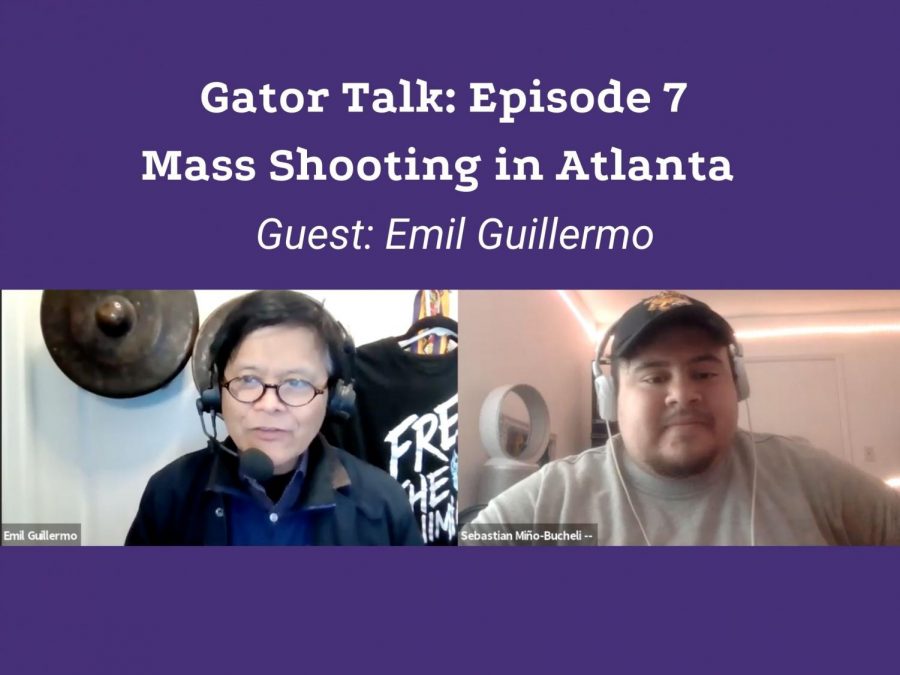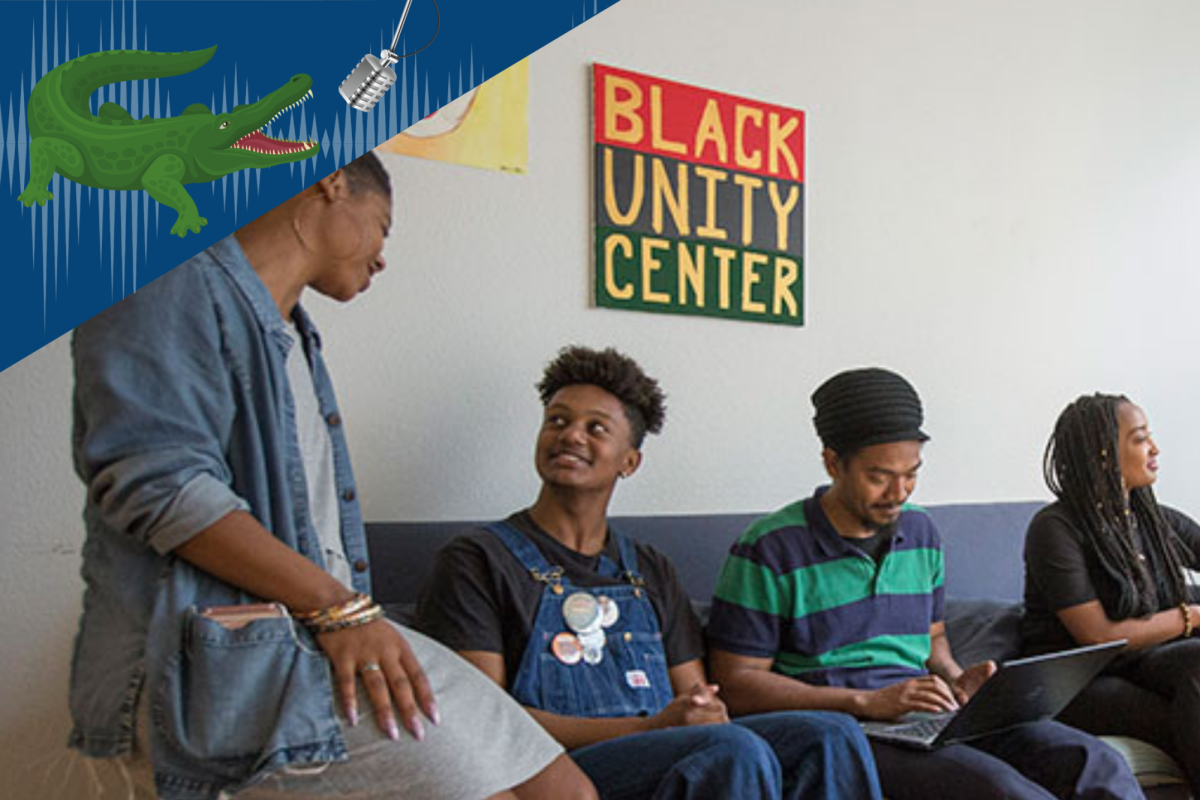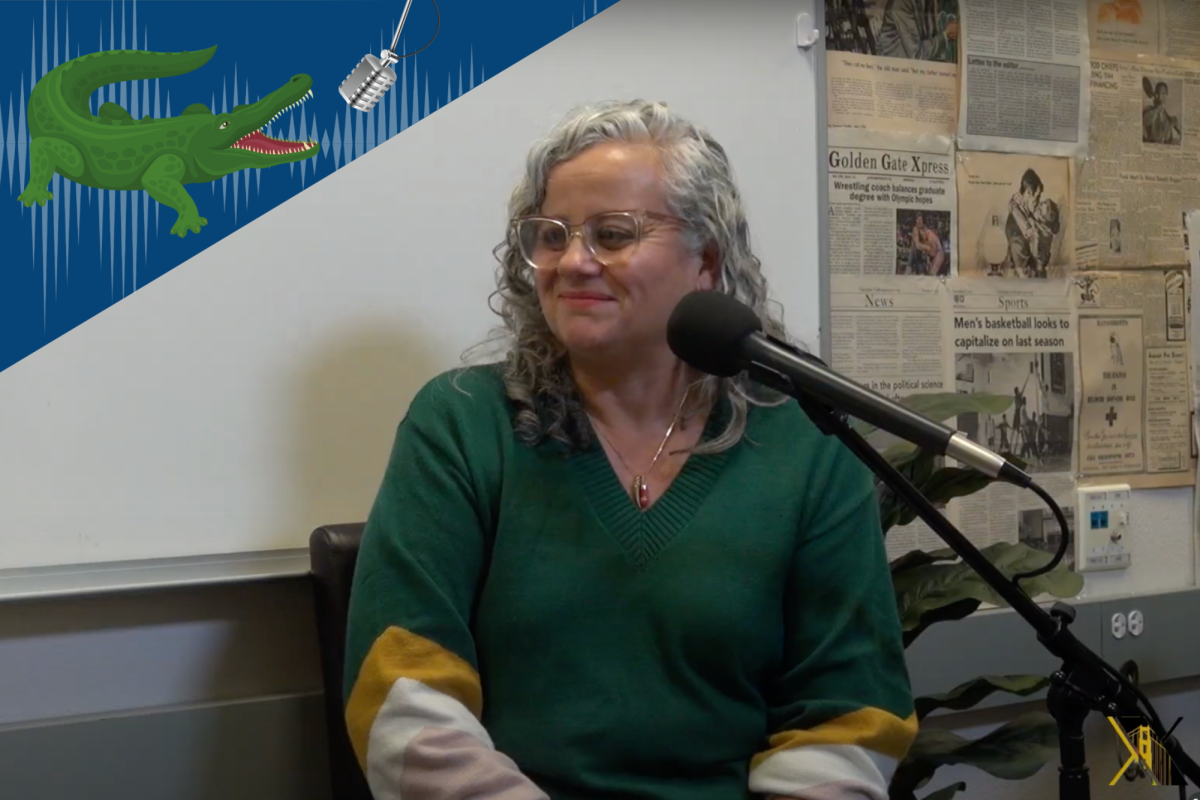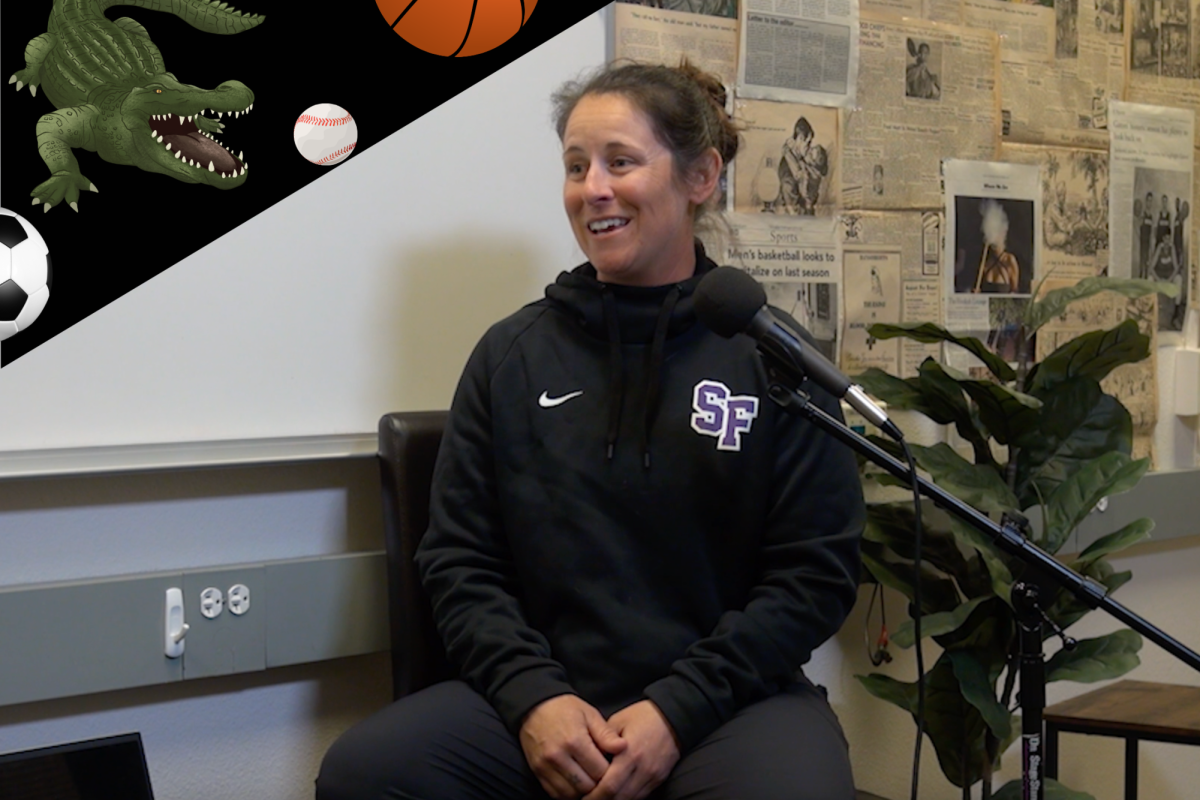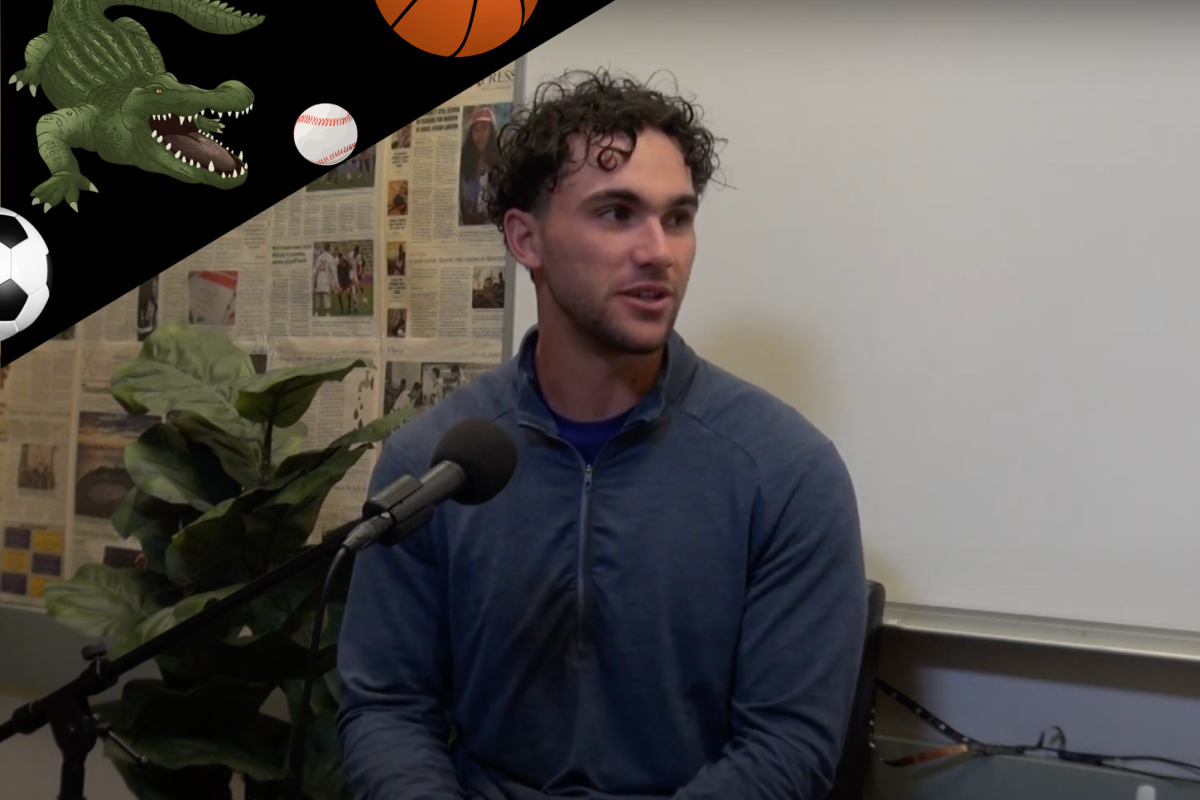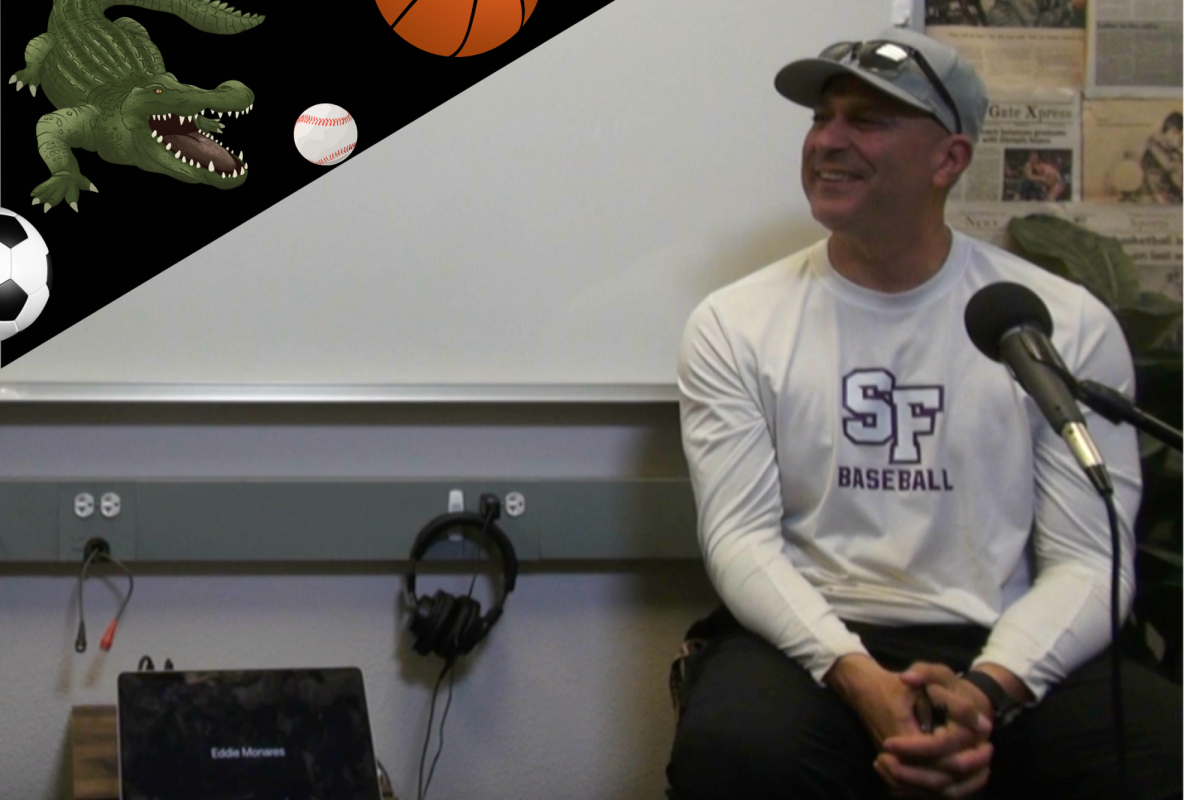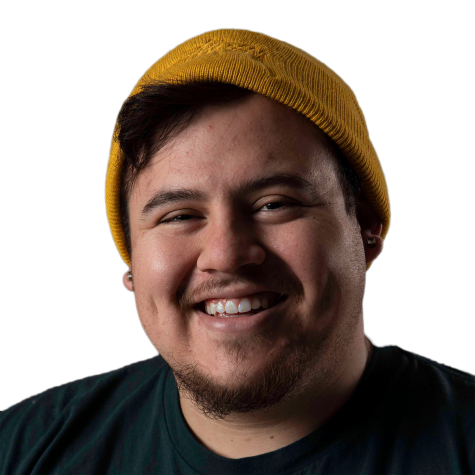Welcome to Gator Talk, a collaborative CalState podcast that brings city and statewide perspectives to SF State news.
In Gator Talk’s seventh episode, host Sebastian invited Professor Emil Guillermo, who taught Diversity in Journalism at San Francisco State University while also being a columnist for the Asian American Legal Defense and Education Fund, as a guest onto for the main story to talk about the mass shooting in Atlanta Tuesday.
Intro
*salsa song fades in* .
This is Sebastian Mino-Bucheli, I’m your multimedia editor and your host for Gator Talk, a Golden Gate Xpress podcast that brings news to SF State students.
For more information/coverage, check out goldengatexpress.org OR @GatorTalkPod on all social media platforms.
Preview of the show
Seb:
Here’s a quick preview of the show.
There’s no news brief this episode because I want to focus on the main story that happened in Atlanta, Georgia.
I’ll be setting up the scene for this brief episode. I’m here with Professor Emil Guillermo. He taught at San Francisco State’s Journalism Department “Diversity in Journalism” class.
Professor Guillermo hosts on his website Amok.com where you might catch a podcast, a “One Man Facebook Live Show” or you can catch his column at the Asian American Legal Defense and Education Fund.
Context Main Story
Seb:
A 21-year-old white gunman walked into three spa businesses in Atlanta, Georgia, and killed eight people Tuesday.
Six of the eight women were identified as Asian women; four of the six have been identified as Koreans which was confirmed by South Korea’s foreign ministry; the other two women who died in this mass shooting were white.
A Latino male was also among the victims, but was only injured during the shooting.
The gunman, Robert Aaron Long was headed to Florida to continue targeting spa businesses but was eventually caught. He faces up to eight counts of murder.
The Cherokee County Police Chief, Capt. Jay Baker, said in the news conference Wednesday.
“He was pretty much fed up and kind of at the end of his rope. Yesterday was a really bad day for him and this is what he did.”
This mass shooting in Atlanta has added more concern due the current rise of Anti-Asian American and Pacific Islander sentiment due to the COVID-19 Pandemic.
The group Stop AAPI Hate, cofounded by SF State Asian American Studies professor Russell Jeung, published a report on March 16, 2021, before the shootings in Atlanta even occurred. The report states that 3,795 incidents were received by the Stop AAPI Hate Reporting center from March 19, 2020, to Feb. 28, 2021.
California State Chancellor, Joseph I. Castro tweeted. “I stand in solidarity with all @calstate Asian and Asian American students, faculty, staff, alumni and community today and every day.”
So here’s my interview with Professor Emil Guillermo.
Main Story
Seb:
First of, how are you doing? For Asian American and Pacific Islander or AAPI people, this has been a time to grieve due to the recent wave of violence towards the AAPI community. So thank you for your reporting and thank you for being here.
Emil:
You’re welcome. I’m doing well. I – this is a bittersweet time for Asian Americans, very tragic, very sad, but unfortunately, something that we have seen, you know, since the 19th century; since Asian Americans, or they were Asians when they came to America. It’s, it’s been our, the way we’ve been treated, I go back to the Chinese you go back to the Filipinos when they were colonized and brought over as colonized people in the 1904 World’s Fair, you go back to how they were excluded after the Chinese were excluded. And then we have the internment camp story and, you know, World War Two and on and on the racism that Asian Americans have faced, just trying to be in America to be Americans. It’s incredible. And the sad thing is most people don’t really know that history, that it wasn’t until 1965, that the immigration. You know rules change, and the racist laws that kept Asians, out of America where those laws were, were, were ended and the 1965 Immigration Act, brought forth this whole wave Asians um that’s a reason why we have an Asian American population now that exceeds 23 million people. So I know that based on when you got here and your knowledge of history, you’re going to feel incredibly, you know, sad, by this but, unfortunately, if you’re older like myself you feel like oh my god, it’s taken people this long to realize the kind of racism that Asian Americans have felt. Historically, you know, in the last year, as you pointed out in your introduction. Stop API hate has registered of nearly 4000 instances of Asian American hate, and it took this kind of fast killing right this kind of spree killing in Atlanta, are people to realize, Oh, you guys have been experiencing this all year. Well, guess what. Yes, but for older Asian Americans who remember Vincent Chin in 1982, who mentioned other mass killings in the 60s Richard spec Asians have been Asian Americans have been victimized, you know, for a long time.
Seb:
One of my, one of my thoughts, I wanted to ask you is, you know, what are your thoughts on the officers comment about the suspect having a bad day, quote unquote,
Emil:
You know, a lot of people have glommed on to Captain J Baker of the Cherokee County Sheriff’s Department, his statement at the news conference. I think it really says something about the people of the Cherokee County Sheriff’s Department, and that news conference. It was almost like an apology for the actions of the perp Robert Aaron Long, who is 21, I might add, and probably not much older probably about the same age as a lot of people who might be listening to GatorTalk.
Emil:
That’s something to think about. This is a person who is a contemporary of yours who could be in the same classes. If you were going to school in Atlanta, or if he was going to school here. Is this a guy that you would see, it’s cool in class would you relate to them. And maybe if he was in a diverse campus like San Francisco State, maybe he would have a different view, right. This Robert Aaron long and so maybe if the captain PJ Baker, who, it turns out, subsequent to his making that statement. He was seen or Facebook posting of his showed a t shirt that that use the term China virus in a way that, you know, Donald Trump used the term China virus which many of us believe set all of this off, gave everyone the excuse to be racist, that that post on Facebook by by Captain Baker has since been taken down, but it does indicate the kind of person he is. And so, I just think that the Cherokee County Sheriff’s folks should probably get a better spokesperson, because they are not. They are not showing themselves to be. They show a bias, frankly, in, in trying to make an excuse for Robert Aaron long,
Seb:
Can you explain, like a racial bias test, and I know we did one in class but maybe to the general audience who may not have even had an opportunity to take a racial bias test. What would that look like
Emil:
You know you remember that implicit bias is the phrase, and they can go and take the test online and see for themselves what it’s like. I used it in class because this is something that a lot of people wrote about when you took my class. Let’s say a couple years ago. And when I first used this in a class. It came up because there were a number of police shootings of African American males and the question was, is there some kind of instant, you know bias that people have when they see an image when they see a name when they see a face. You can take this, This online test. It’s found by Harvard and they use it as a. They collect data to see what kind of bias does exist, and it does show that sometimes it can reveal. You know what kind of person you are. If you think you’re not racist, well maybe when you see a face, maybe you react one way and not necessarily in the good way, the fair, and unbiased way. And I know that there was a move to try to get a lot of people in law enforcement to take his tests or to go through implicit bias training. But like I said the best way for, for listeners to understand what implicit bias is is really just to go online or Google implicit bias, Harvard fits on the test, and it just is a way to see or to understand the kinds of impulses one when has when you see a person of a different color or a different ethnicity, walk by, or you see images or words or something indicating that person. And you can see if maybe you have an implicit bias.
Seb:
Having increased Patrol groups / increased policing by the Police Department in the Bay Area especially in Chinatown of San Francisco or Oakland might be seen as a win but with my Latino lens – I feel that it’s never a good one.
Emil:
Well, like it depends on what the police do. I think that the police are finding out that there are some expectations of the police that we want them to be more than just the guys who bang, You know, banging on heads and shoot people that well if they’re going to shoot people in their heads, they better be the bad guys, and they have a bad record of that. So, this is why the reaction is Oh, the less police, the better. But if we don’t have police. Then what do we have, what so what we need is we need to as a say reimagine the police. See how the police can approach their duties, and be not the law enforcement Avengers, that maybe be, you know, the old fashioned cop on the beat the old fashioned symbol of law enforcement so that when people see them when the bad guys see them they say, Oh, I got to behave, because there’s a cop, and then when the good guys see the cop, they can say, Oh, I’m relieved because I feel safe because a cop is there. Right now we have a situation where there’s the cop and bad guys say, oh, you know, we’ll wait till it goes away. It goes to the donut shop, and the good guy says, Oh, the cop. He’s terrible, he’s getting beat up by my cousin, he shot my brother. That’s not a good thing. So we need to. We need the police, I think it makes sense for the police to be more cops on the beat, to be symbols of security and, you know, for people to take into their own hands. I say it’s good to have armed groups who could act as escorts for the elderly, maybe act as escorts for people who might need. Say, someone to help them walk to a car, or walk to the bus station. What, you know, We were using a boy scouts we did that we used to have, you know, good citizens who did a good deed to help out people, and you
Break
Seb:
We’re going to take a quick break
Support the Golden Gate Xpress’ work by signing up for our online newsletter, following us on Instagram or Twitter @ GGXnews, and visiting the website: https://goldengatexpress.org
Interested in advertising with GGX? Check out our advertising page on goldengatexpress.org/advertising.
Main Story cont.
Seb:
I mean that that did bring me to the point of like the community patrol groups, you know, it does equal vigilantism So, is that even safe.
Emil:
Well look, it’s one thing if, like the guardian angels if they don’t, they’re not beating up people if they’re unarmed, and if they’re there as a presence. It’s not, I don’t think it’s bad vigilantism. however, you can take it too far, and I think this is where I think the police need to step up and say you know what these volunteers, these uh you know semi vigilante groups, a nice idea, but you know what, We can be responsible for our community, by, by being the law enforcement officials that we are, and maybe it’s something that they, that police departments can use, say, lesser, you know, Maybe. Police Cadets who weren’t full, full, full fledged officers, maybe it’s something where they could use those kinds of folks, but I, I tend to not like vigilante groups, but in this case if they’re there just to be a community presence, maybe considering the times, it’s not that bad. Bad idea.
Seb:
And you did touch upon in talking about that to, I would say you know what’s broken here, you know, the Justice Department in Atlanta or the Bay Area for failing to act upon hate crimes, because it’s hard to prove you know that in law that this is a hate crime incident, or, you know, is it the news media for amplifying this problem, or is this issue has this issue fester, Long before President Donald Trump came into office, you know, it’s always been there.
Emil:
I think if you look at this, the stats show that hate crimes are generally underreported. And they don’t, I, I think, I think you got to blame prosecutors, I think you have to blame. Police for not using the laws that exist, or the laws that are there. Sometimes they don’t want to push it that hard. This case here in Atlanta. Should be pretty, pretty open. In short, they only need probable cause, and they only need to show that this expand expanded version of the hate crime laws that all they have to do is prove that a, you know someone on the basis of gender or sex was, was being targeted, and clearly I think you have probable cause to show that, maybe even more so than the probable cause of the race was invovled.
Emil:
I mean if they’re hesitant about race. I don’t think they should be hesitant on gender or sex or gender or. Yeah, gender or sex so
Seb:
And, you know. Right now, Congress is being called out to act against anti Asian hate, so I’m curious to think of what that would look like and where to stop API hate crime. Like. Hate comes into the picture.
Emil:
Well, it comes into the picture only because finally people are noticing that there is hate that exists now the question is what can Congress do. I think Congress can make sure that their fellow lawmakers don’t use racist tropes or racist comments, or, you know, this whole thing about the rhetoric of Donald Trump being mimicked by, you know his underlings. I mean, I think that’s sad when people don’t realize that. I think one of the best things Congress can do right now is maybe mandate, Asian American ethnic studies, frankly, I mean if we knew more about Asian American history. It’s really American history, but with an Asian emphasis because that’s the stuff that gets left out. I think unfortunately all of America is tremendously rid of American history, but if we made sure that people do a little bit more about the history of immigration, the history of Asians to America. I think they’d be able to understand some of the things that people are feeling right now. And I think that’s helpful so I’m looking at maybe Congress can can pass laws that, you know mandates Asian American history classes and, you know K through eight or something like that I don’t know if they could do that but certainly I have very little hope that they’ll pass any laws, it’ll make a difference.
Seb:
Okay Professor Guillermo, thank you for hopping on for this brief episode. This is your spot to plug.
Emil:
Thank you for that.
Asian American Legal Defense and Education Fund.
AALDEF.org/blog
They’re one of the original Asian American Civil Rights organizations in the country. They are based in New York, I write from them out of here from California.
They are a significant group that helps Asian Americans in civil rights, housing issues, etc
Check out my columns there. Check out my blog and vlog at Amok.com
And um, my podcast. Emil’s Takeout wherever you podcast.
Seb:
*laughs*
Emil:
Well look, check it out. Emil’s Amok Takeout.
I think the easiest way is to go to Amok.com
End
And that was the episode.
This was Sebastian Miño-Bucheli, Multimedia Editor from Golden Gate Xpress and your host for Gator Talk.
New episodes will premier Friday mornings so stay tuned.
And with that, I’m signing off.
Stay safe out there.




